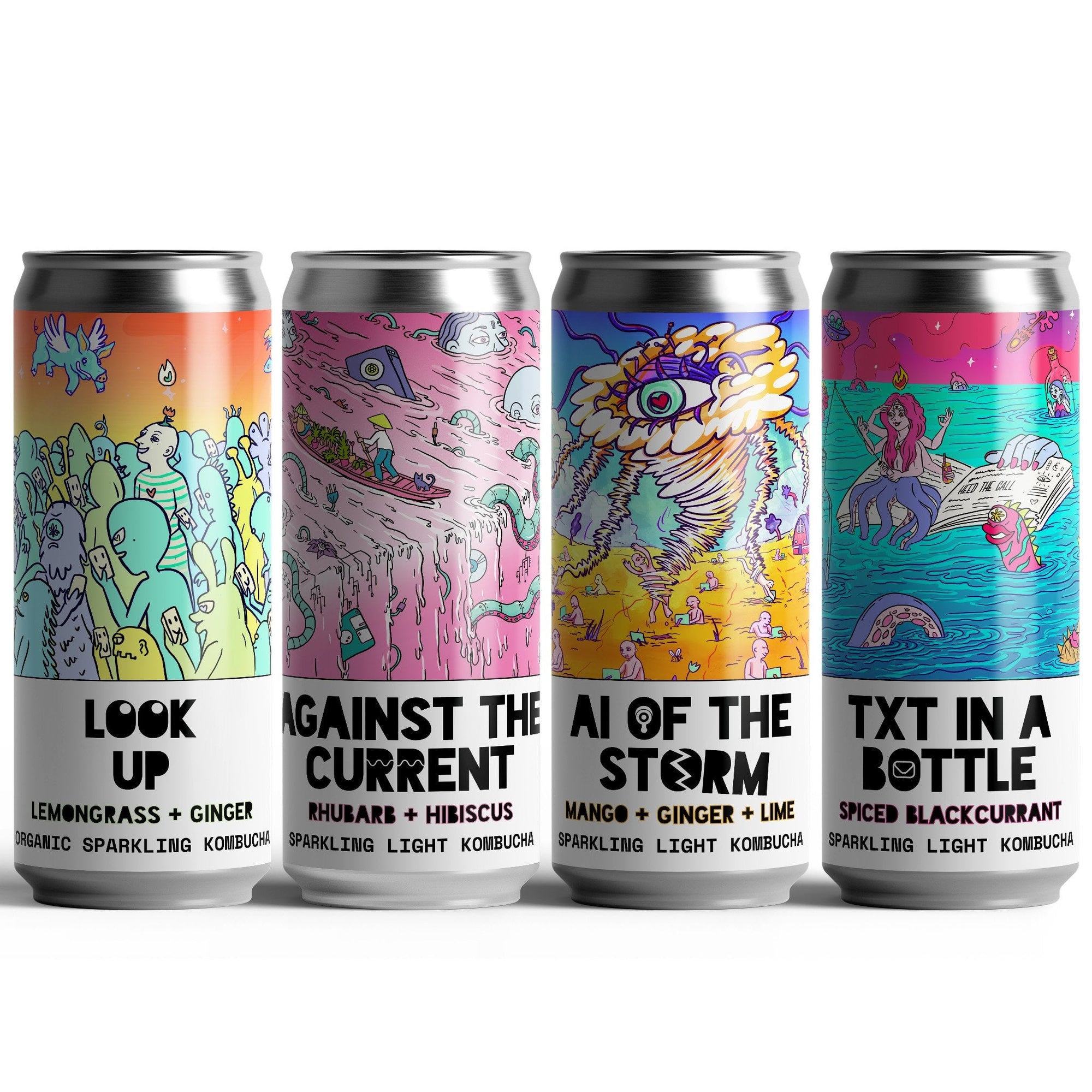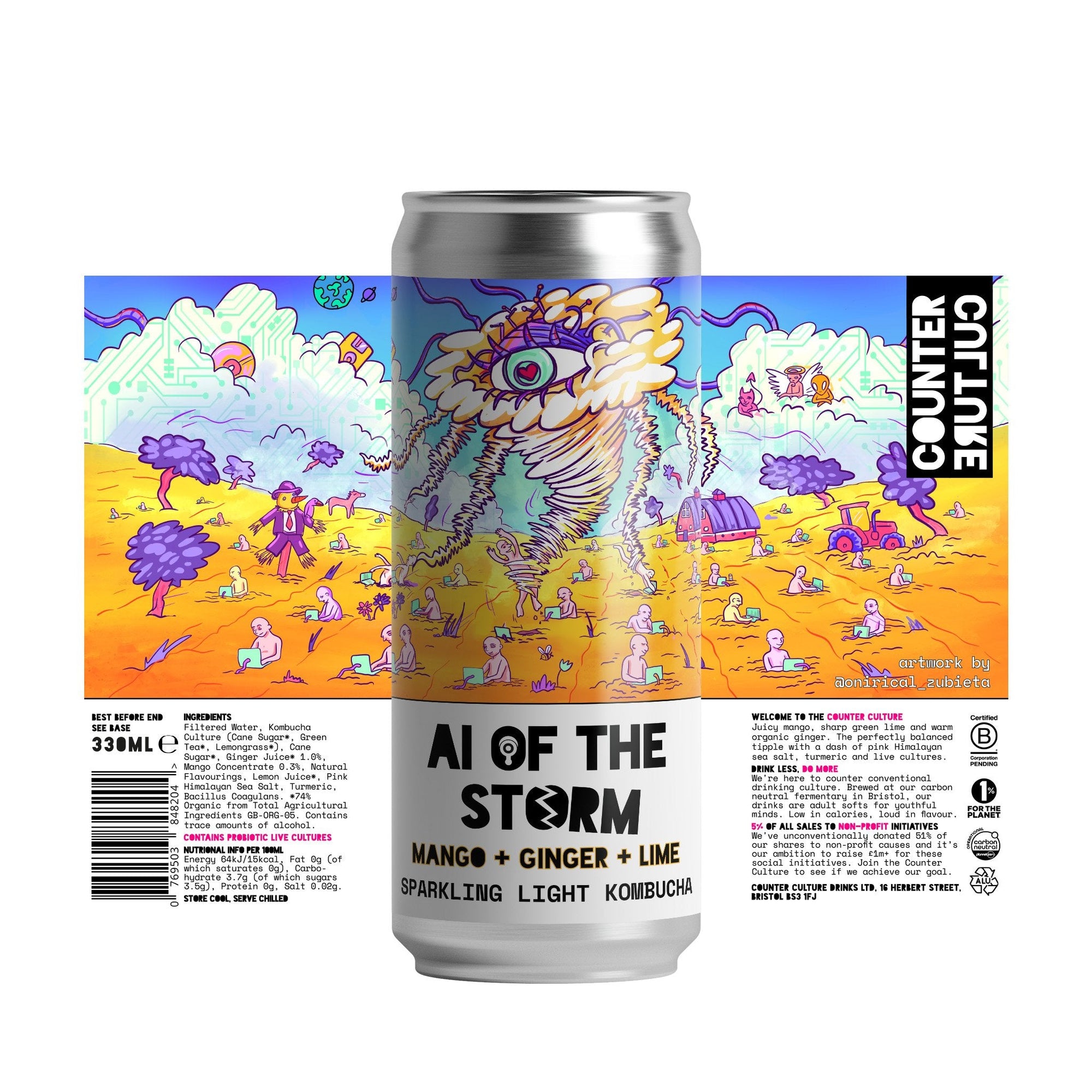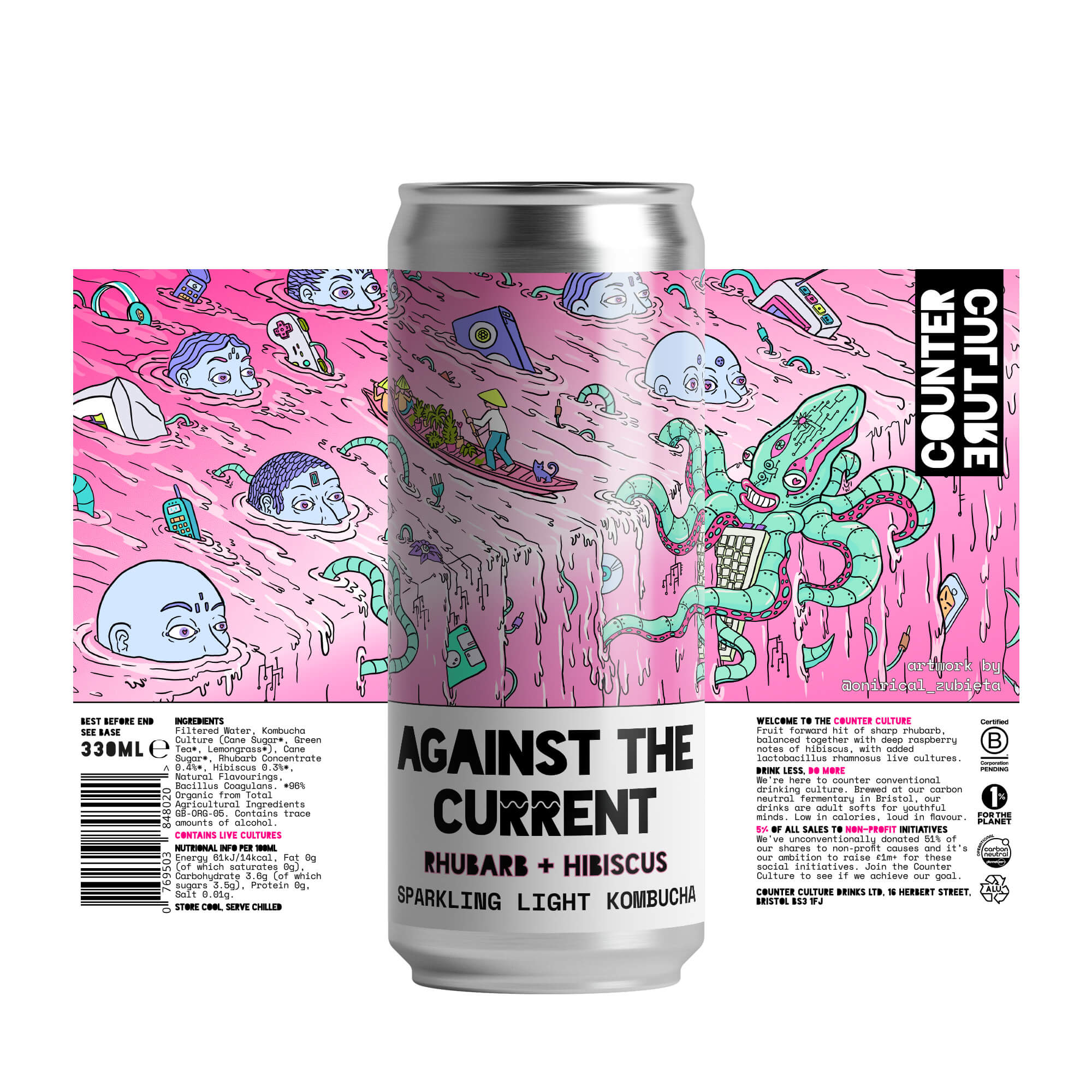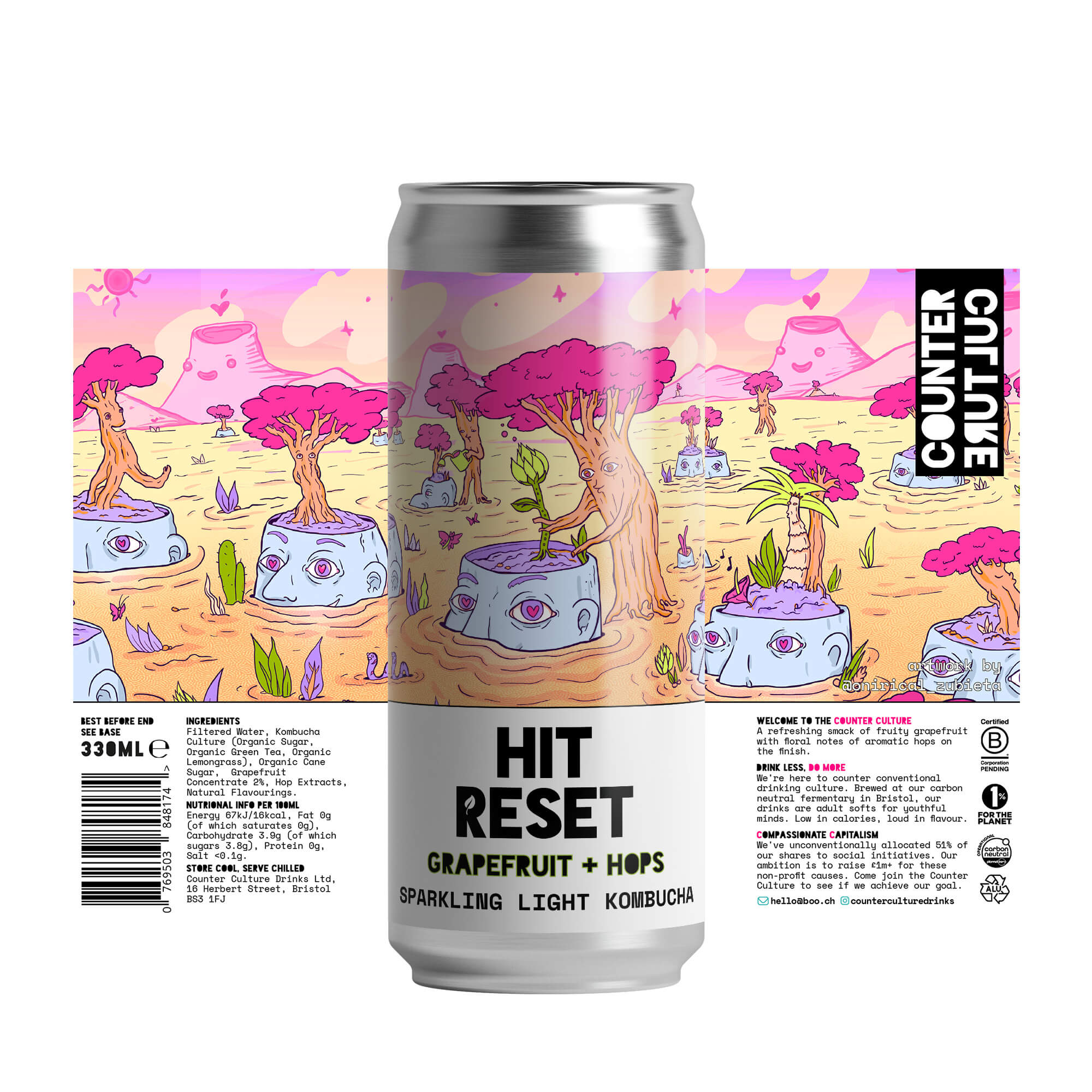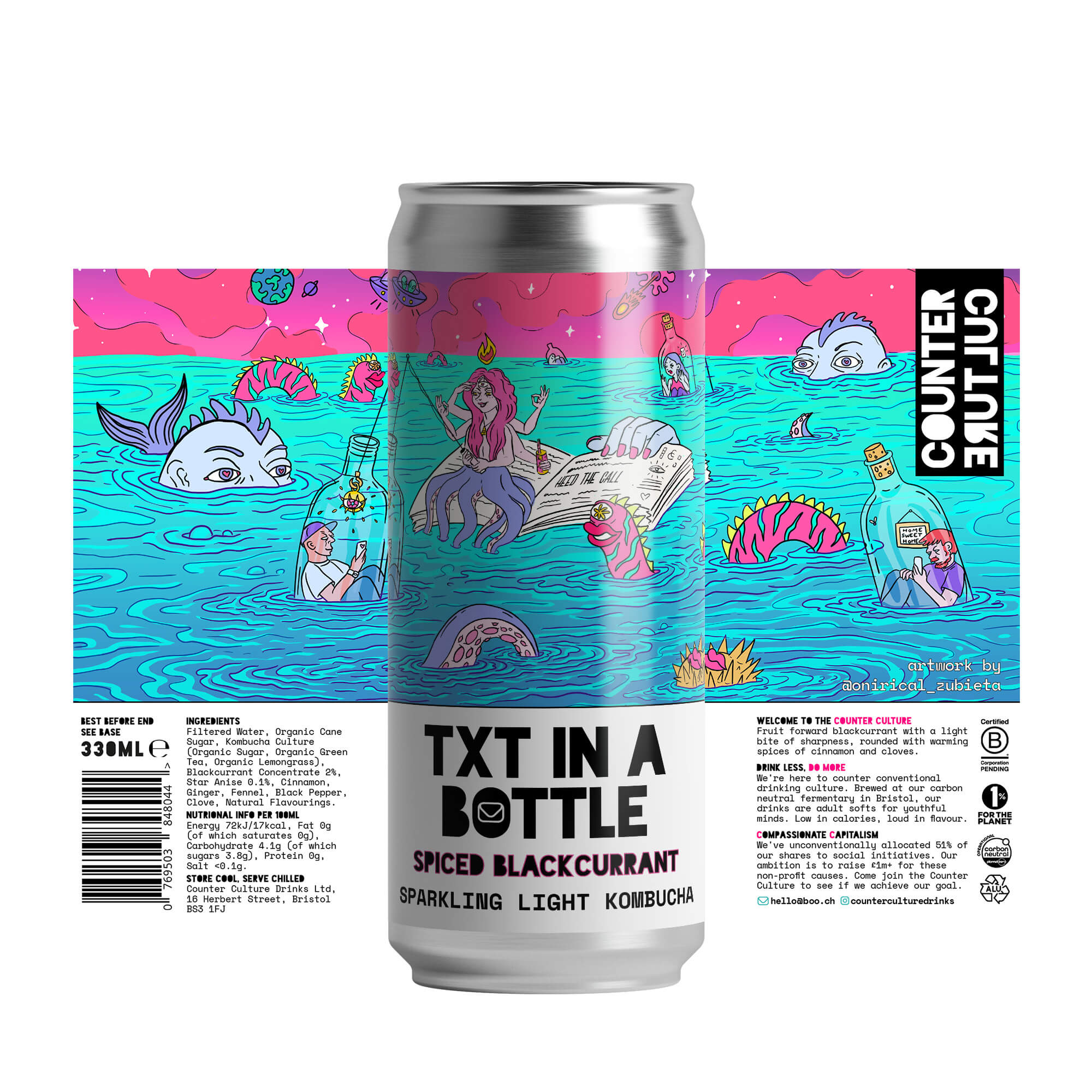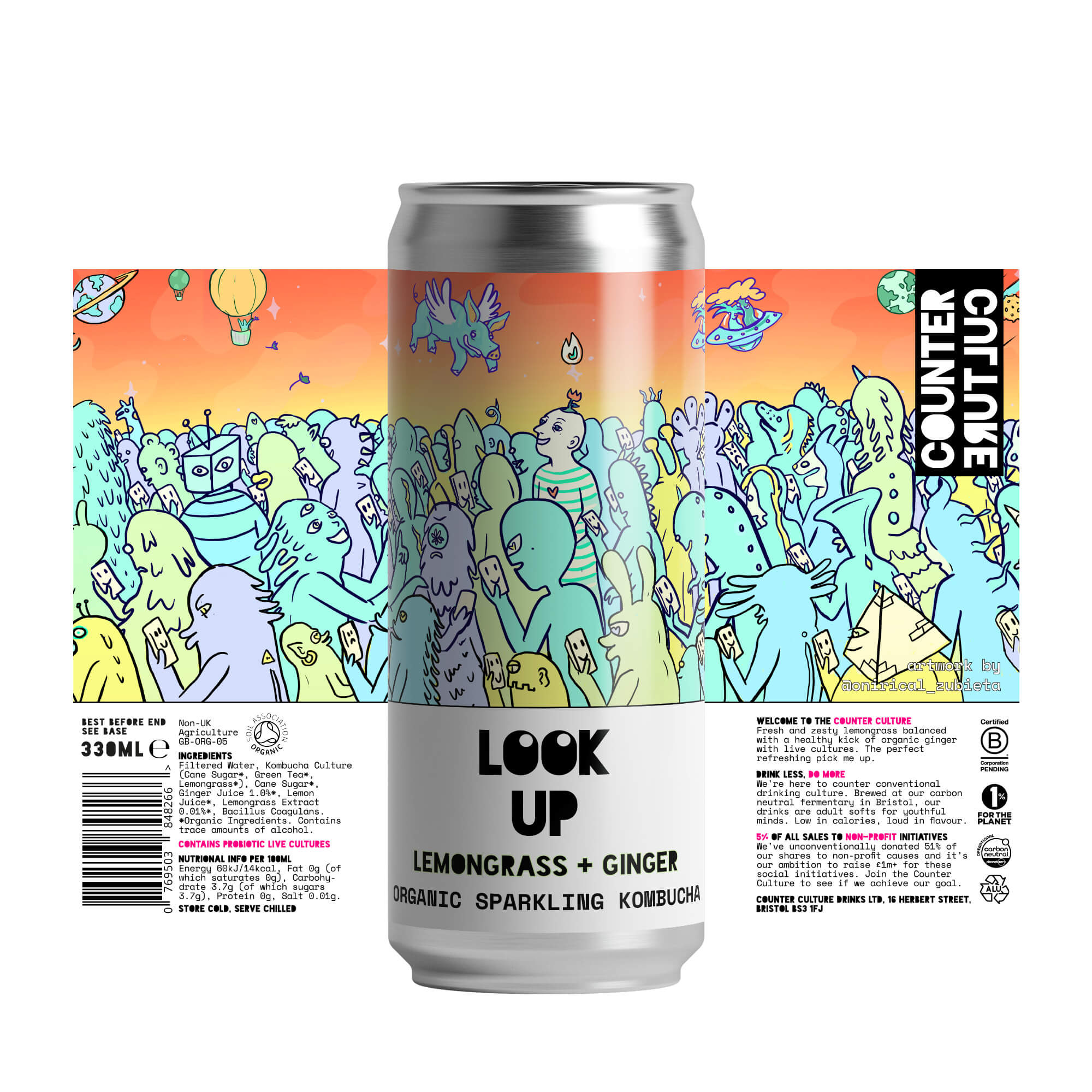When can a drink be labelled as low sugar?
One of Counter Culture’s founding values is advocacy: we permit ourselves to be politely-pissed off if we encounter things we perceive to be unfair or wrong, and then we do what we can to shine a light on the issue or fix it ourselves.
One issue that’s prodded us lately is the sugar labelling by some of our fellow kombucha brewers, surprised at how many UK brands are referencing their drinks as “low sugar”. We don’t think they are deliberately trying to misguide consumers but are simply unaware of the rules of when this claim can be made. However, we are concerned that given kombucha's reputation amongst many as a “healthy” drink that some companies find justification in lazily tagging on the claim.
Our Sparkling Light Kombuchas are between 3.5% and 3.7% sugar which is about average for a kombucha in the UK, having observed other brands broadly in the range between 2.5% and 4.5%. Therefore one 330ml can of our Sparkling Light Kombucha contains around 11g of sugar (a little over two teaspoons). Designing a kombucha is a balancing act between sweetness and acidity and some sugar is a largely inevitable consequence given it is the fermentation fuel. Some brands contain no sugars and instead use sweeteners like stevia and erythritol. Right now we are sticking to the traditional method and not using any sweeteners in our drinks.
So getting down to it, how low is low? Or more specifically, what are the UK food labelling guidelines for the use of “low sugar” in reference to a drink? As a new drinks business we needed to find this out to see whether our drinks qualified or not. After a bit of digging, we located the Great Britain Nutrition & Health Claims NHC register on gov.uk. We've subsequently also been signposted to the EU regulations that this appears to stem from (Corrigendum to Regulation (EC) No 1924/2006 of the European Parliament and of the Council of 20 December 2006 on nutrition and health claims made on foods) if anyone fancies a read:
“A claim that a food is low in sugars, and any claim likely to have the same meaning for the consumer, may only be made where the product contains no more than 5 g of sugars per 100 g for solids or 2,5 g of sugars per 100 ml for liquids.”
Well, seems pretty clear to us. 2.5% is the threshold and since our Sparkling Light Kombucha is above this, you will not see us reference this range as low sugar. But are their some kombuchas out their labelled as low sugar? The answer is yes. Many of which are widely available in supermarkets and national food chains – so what’s going on?
-
Kombucha A – (widely available at Ocado, Leon and about 400 stores based on their website):
- Flavour 1: 3% sugar on label, low sugar icon on website as of 07/02/23
- Flavour 2: 3% sugar on label, low sugar icon on website as of 07/02/23
- Flavour 3: 3.5% sugar on label, low sugar icon on website as of 07/02/23
Update: While drafting this article we are pleased to see this business have removed references of low sugar from their website.
- Kombucha B – (available in Waitrose, Sainsburys and many other shops)
- Flavour 1: 3% sugar, website says low sugar as of 27/03/23
- Flavour 2: 3% sugar, website says low sugar as of 27/03/23
- Kombucha C - (on sale in many places in London)
- Flavour 1: 4.6% sugar, label on bottle says Low in Sugar
- Flavour 2: 4.9% sugar, label on bottle says Low in Sugar
-
Kombucha D – (available in Harrods and Booths, admittedly these are only just over the threshold)
- Flavour 1: 2.6% sugar on label, low in sugar in product description on website as of 27/03/23
- Flavour 2: 2.9% sugar, low in sugar in product description on website as of 27/03/23
- Flavour 3: 2.8% sugar, low in sugar in product description on website as of 27/03/23
-
Kombucha E - (available in around 50 locations according to their website)
Low sugar claimed on homepage of website (as of 27/03/2023) but:
- Flavour 1: 4.1% sugar
- Flavour 2: 3% sugar
- Flavour 3: 4.3% sugar
This isn't even an exhaustive search, there may be more out there. We have approached the other brands for comment and will publish any of their responses as an update to this article.
We believe creating a drink for consumers should be more than just a simple exchange of money for a product. We think consumers have the right to make accurate decisions about the money they spend and the choices they make, specifically when it comes to their nutrition and health. We think its important to highlight to consumers the minefield that legislation can be for companies as well as raise awareness that although kombucha is seen as a health drink by many, a drink shouldn't be automatically considered healthy just because it's a
kombucha.
We hope this article gets the ball rolling in the right direction. Working together collaboratively across our industry to improve and give better service and products to our customers will always be our goal and, in our opinion, should be the goal of every company. With our customers at the forefront of every decision, lets respect them, respect the legislation and hold each other accountable.

